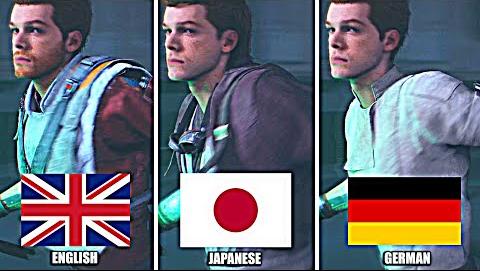In today's interconnected world, video games have become a global phenomenon, captivating players from diverse backgrounds. However, for a game to truly resonate with players worldwide, it must undergo a process known as game localization. Game localization refers to adapting a video game to suit the linguistic, cultural, and regional preferences of a target audience. This article explores the significance of game localization, its key elements, challenges, and the positive impact it has on the gaming industry.
Understanding Game Localization
Game localization goes beyond mere translation. It involves a comprehensive process that ensures a game is not only accessible but also culturally relevant to players around the world. Localization encompasses various aspects, including:
- Language Translation: Translating in-game text, dialogues, menus, and subtitles into the target language(s), allowing players to understand the game's content and story.
- Cultural Adaptation: Adapting cultural references, humor, idioms, and symbols, ensuring they resonate with the target audience without causing confusion or offense.
- Audio Localization: Dubbing or subtitling voice-overs to match the lip-syncing of characters, while maintaining the tone and emotions of the original dialogue.
- User Interface (UI) Adaptation: Modifying the game's user interface elements, such as buttons, menus, and icons, to accommodate different languages and alphabets.
- Legal and Regulatory Compliance: Ensuring the game adheres to local laws, regulations, and age restrictions, preventing any legal issues or content-related controversies. (Geneva Conventions)
Challenges in Game Localization
Game localization is a complex undertaking that involves overcoming various challenges, including:
- Linguistic Nuances: Languages differ in grammar, syntax, and idiomatic expressions. Translators must capture the essence of the original text while ensuring it reads naturally in the target language.
- Cultural Sensitivity: Each culture has unique beliefs, customs, and taboos. Localization experts must carefully adapt content to avoid cultural misunderstandings or offense, making cultural research an essential aspect.
- Space Constraints: Translated text often expands or contracts, affecting user interface elements. Finding concise yet accurate translations without compromising the original meaning can be a puzzle that requires careful consideration.
- Voice-Over Challenges: In audio localization, voice actors must match the original performance while conveying the intended emotions. Lip-syncing can be challenging, especially when different languages have different speech patterns and timings.
Benefits of Game Localization
Effective game localization offers several benefits to both game developers and players:
- Expanded Market Reach: By localizing games, developers can tap into new markets, increase their player base, and generate additional revenue. This is particularly significant in regions with a high demand for gaming, such as Asia and Europe.
- Enhanced Player Experience: Localization allows players to fully immerse themselves in the game, understand the storyline, and appreciate cultural references. It enhances accessibility, making gaming more inclusive for non-English speakers.
- Competitive Advantage: In an industry where global competition is fierce, localized games give developers a competitive edge. Players appreciate games that cater to their language and cultural preferences, fostering brand loyalty and positive reviews.
- Cultural Exchange and Understanding: Game localization promotes cultural exchange, enabling players to experience diverse perspectives and traditions. It helps bridge gaps between different cultures and fosters empathy and understanding among players worldwide.
Conclusion
Game localization plays a vital role in making video games accessible, culturally relevant, and appealing to players worldwide. It involves much more than translation, encompassing linguistic, cultural, and technical aspects to create an immersive gaming experience. By breaking language barriers and bridging cultural gaps, game localization not only expands market reach but also fosters cultural exchange and understanding among players around the globe.
Star Wars: Jedi Survivor in different languages
